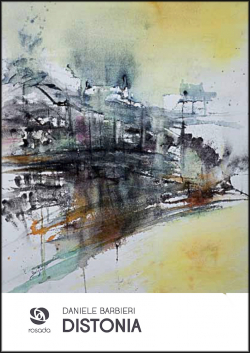Editorial
by Francesca Del Moro
Made-up relationships are typical of children yet – however difficult it may be to admit it – they often console us as adults as well, making us feel less alone. There are different kinds of imaginary friends, as we read in Matthew Dicks’ book, and the selected poets present an interesting range of possibilities. In Brenda Porster’s unadorned verses, a little girl’s ideal friend is a little donkey, a game companion who listens to her secrets and with which she can plan a fantastic escape from reality. And it might be a person or another animal, maybe a magical bird, the flight companion invoked by Laura Solieri in her fanciful poem, while a beloved literary character gives a fairy tale atmosphere to Rodolfo Cernilogar’s verses. Another possibility is to have an imaginary relationship with a person who was real, as the friend coming from the past who soothes the sense of loneliness and distress in the intense verses by Cristina Bove. Also from another time and another place comes the thought of a friend to Giampaolo De Pietro’s mind in a dreamlike morning, in a combination of vivid memories and literature. Davide Cortese’s verses might surprise at first, as – pressuring the reader with provocative questions – he presents death as an ideal mate. But then, when you think about it, his conclusions are far from illogical.
Come, Peter Pan
by Rodolfo Cernilogar
Come, Peter Pan, I leave you
my shadow. With the scissors
cut the black outline,
the darkness invading the room.
I cannot turn – take the measurements
by yourself – because childhood
turns into salt, and a little girl
in the alley chases a dream or a butterfly.
Hurry up. Cut the night above the shoulder
and forget my name.
Leave a little lightness in return.
Pass me the navigation device, please
by Laura Solieri
It’s on the brink of the sodden feather
that we experience the thrill
of reckless skydivers.
Fly a little closer
fly over me, my friend, every now and then
come and take me by the scruff of the neck,
if I call you
there must be a reason.
You ask:
on the tip of your tongue
do you feel winter or the sweet taste of watermelon?
Something in between,
an April on sale
is the answer that conveys the idea,
but let’s break the piggy bank now,
the night’s savings,
as you’ve promised me a zero-mile tour.
A new morning
by Giampaolo De Pietro
A new morning the miracle of
(possibly) reading Apollinaire like and maybe
for the first time the colour of coffee
the door being able to tremble by
itself the tractor
of the voice that still has some sulphur ready and
a few other little eponyms for your world
your morning name
Sat down show
word word (air, open), friend dear friend
I wish I could
call you on the phone drink a cup of
your Turkish coffee and chat
This morning I’m reading Apollinaire,
and I’d like to take a walk with you
So I am waiting for you – waiting
to hear you with my ear up
My heart ahead the recollection
of your exact examples, names, deeds.
The little girl
by Brenda Porster
The little girl wished she had
a little donkey
to pull its tail,
but not too hard.
She wished she could whisper her secrets
into its long ear
and laugh about them together,
mixing the ha-has with the hee-haws.
With her on its back
they would have followed dusty paths
before melting, together,
into the nothingness
of the horizon.
Why, after all, do you fear her?
by Davide Cortese
Why, after all, do you fear her?
Doesn’t she come to soothe all sorrows?
Doesn’t she come to make
your whole story meaningful?
And yet, in spite of your fear,
you’ve always talked to her
like to an imaginary friend.
Whatever the origin, it’s real
by Cristina Bove
She appeared one day
in my room of addictions
whispering me a mantra
friend of less grey past times
she repeated love in a few syllables
and improvised lights in the fog
sometimes delicate kisses on the cheek
_I didn’t believe in winter fairy tales_
and little could I imagine
in the prime of my life, my hair
the colour of chestnut,
that she would come and rekindle me
_I breathe the warmth of her presence_
in these thick, silvery times
as we sit on the shore of life
she protects me from air flattery
_the same enticements of other flights_
and entertains me in these dark zones
telling me of light
projecting me into another nosing around
painting endless canvases with me
Distonia
by Daniele Barbieri
A rush of words, a gasping flow, marked by syncopated rhythms, dogged repetitions, reiterations with small variations, alliterations, following a stream of consciousness that cannot be – or maybe doesn’t want to be – canalised. This verbal travel is also a physical travel through the labyrinth of existence, in a non-place which is every place, the abstract world of the poem, through endlessly projected expanses of sky, sea, grass (a stylisation of Planet Earth) and landscapes running along the window of a train, which offers itself as a metaphor of life’s journey. And along the way the questions come in quick succession, the statements capsize, contradict themselves or expand, specify themselves, within a monologue that seems more an asphyxiating dialogue with oneself, where thoughts arise one from the other, break each other, reflect each other, pursue each other, blooming from the white page, despite any convention concerning the articulation of the discourse. Words swimming frantically, struggling to stay afloat, to reach who knows what shore, while the pauses come as a relief between the short stanzas, mainly couplets to be read/pronounced in one breath. Words in danger of drowning, hopelessly striving to resist the water dragging them down, as in one of the frequent scenes of dissolution that besiege these poems. Each word is threatened with disappearance, with an emptying of meaning, dreaded and desired at the same time. Maybe we should give up and abandon ourselves to non-communication, and yet keep talking with nothing to say, as Beckett’s Mouth sucking in the body through its overwhelming discourse. Nevertheless, the urgency to convey a message, the wish to get in touch with others often emerges as an anchor point in these torrential verses, a thread to hang by, an armour to protect oneself. And everywhere, a yearning for truth, for the disclosing of one’s inner being, of the most authentic self makes its way through the lack of meaning embracing things and people stubbornly getting busy. Far from being meaningless, the words of other poets travel across time and all over the book (from García Lorca, Campana and Sanguineti, explicitly quoted, up to implicit references like the one to Baudelaire’s lid-sky). Poetry is always hard-fought, sought, it has to be faced in a close fight, struggling to “pull it out like a thread from the mouth of the spider”. Poetry is a light that shines in an abstract landscape, often cloaked in dreamlike atmospheres, as in the representation of the marching chimneys playing musical statues, or in the run of the oxen, or in the grey sky descending upon things to suffocate them. From the very first poem, announcing an epidemic that makes people unable to perceive themselves and each other – as in Saramago’s Blindness – these nightmarish scenes gradually become apocalyptic. Thus, in our perception the title easily becomes distopia, or suggests the idea of an alteration in tone, rather from a musical than from a muscular point of view, with the complicity of the verses’ rhythm and of the division of the work according to musical movements.
DISTONIA
di Daniele Barbieri
Edizioni Kurumuny, 2018

